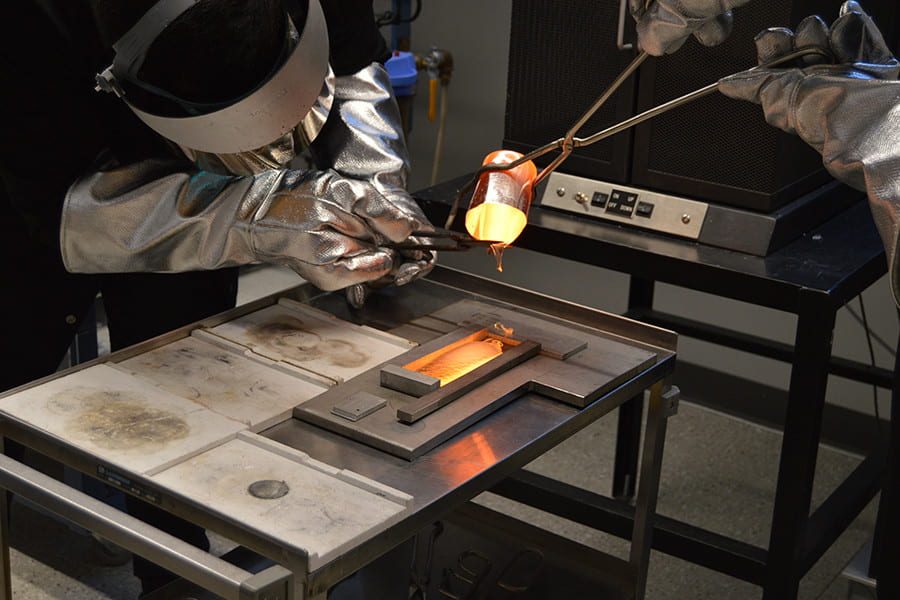Glass as a material of study has a long and rich history. Today at Penn State, glass substrates for electronics, optics, and biotechnology; glass fibers for insulation and reinforcement; glass for nuclear waste immobilization; and glass for energy storage are of primary interest. The characterization of their surfaces is a primary focus, along with processing dependent properties such as chemical durability, strength, and adhesion.
Partnerships with a variety of glass manufacturers add the dimension of commercial glasses, especially those being currently developed for photovoltaic substrates, high strength glasses for touch screens and fibers for lightweight composites. Their surfaces are being modified by thermochemical or thermoelectric treatment or by application of functional coatings; of particular interest are "green" coatings with high adhesion and hydrolytic resistance. Molecular modeling of surface adsorption, hydration and dissolution is key aspect of this interdisciplinary approach to glass surface science.
Penn State is also a cofounder, with Lehigh University, of the International Materials Institute for New Functionality in Glass, an NSF-sponsored organization for fundamental research and education in future glass technologies. Penn State researchers are at the forefront of glass chemistry, processing, and engineering properties.




